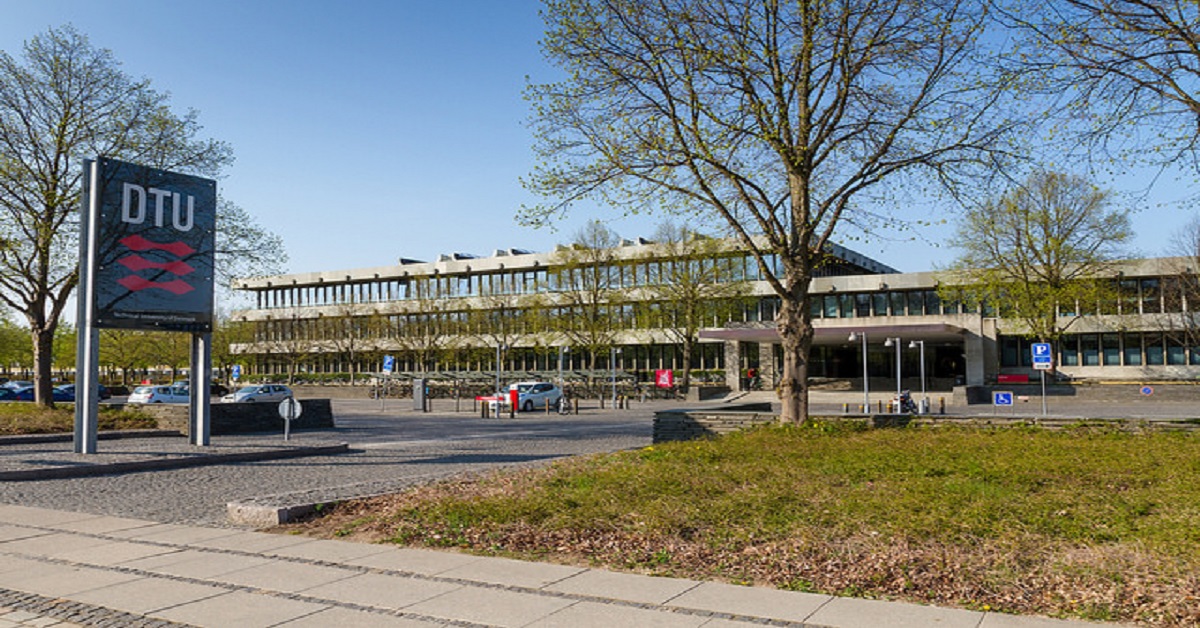
PhD in Trait-based Modelling of Life in the Global Ocean to develop, implement and analyse models of microbial life and sinking particles
Centre for Ocean Life (www.OceanLifeCentre.dk) offers 3-year PhD fellowship(s) in trait-based modelling of life in the global ocean. The fellow(s) will be employed at DTU Aqua (The National Institute for Aquatic Resources, Technical University of Denmark).
We expect the PhD candidates to develop, implement and analyse models of microbial life (plankton) and sinking particles based on the “Nutrient-Unicellular-Multicellular” model framework. The overall aim is to scale from traits of individual organisms to the function of the ecosystem on a global scale.
The application should contain a motivation for why you want to work in the Centre for Ocean Life. The application may include a description of your own project ideas in accord with the goal of the Centre inspired by the project: https://tinyurl.com/559ntthx. The final PhD project will be developed in collaboration with the supervisors in the Centre.
Responsibilities and qualifications
The PhD candidate(s) will become part of the vibrant, cross-disciplinary, and international research environment at the Centre for Ocean Life. The centre is a collaborative effort to develop a fundamental understanding and predictive capability of marine ecosystems through the use of trait-based approaches. We currently have a group of about 20 young scientists associated the Centre (PhD and Postdocs). They are working on various aspects of marine life using diverse approaches (observational, experimental, theoretical) while collaborating through weekly science meetings, annual science retreats, numerous working groups, and collaborative projects. Their backgrounds are as diverse as are those of the PIs of the Centre, from physics and mathematics to biology and chemistry, and we spend considerable effort developing cross-disciplinary communication and projects since we believe that the potential for discovery and progress may be achieved by confronting the different disciplines.
DTU is a leading technical university globally recognized for the excellence of its research, education, innovation, and scientific advice. We offer a rewarding and challenging job in an international environment. We strive for academic excellence in an environment characterized by collegial respect and academic freedom tempered by responsibility.
We are looking for physicists/mathematicians/engineers with a keen interest in marine ecology, or ecologists with documented quantitative skills.
Candidates should hold a two-year master’s degree (120 ECTS point) in physics, biology, mathematics, engineering, or a similar degree with an academic level equivalent to a two-year master’s degree, e.g., a complete degree with 300 ECTS.
Approval and Enrolment
The scholarship for the PhD degree is subject to academic approval, and the candidate will be enrolled in one of the general degree programmes at DTU. For information about our enrolment requirements and the general planning of the PhD study programme, please see DTU’s rules for the PhD education.
Salary and appointment terms
The appointment will be based on the collective agreement with the Danish Confederation of Professional Associations. The allowance will be agreed upon with the relevant union. The period of employment is 3 years.
You can read more about career paths at DTU here.
The successful candidate can is expected to start as soon as possible but no later than the end of 2022. Candidates that complete their MSc before then can apply but cannot begin before having received it.
Further information
For further information about the positions and the projects please contact Professor Ken H Andersen (kha@aqua.dtu.dk), Professor Andy Visser (awv@aqua.dtu.dk), or Professor Thomas Kiørboe (tk@aqua.dtu.dk).
Do NOT send applications to the above e-mail addresses but follow the electronic application and submission procedure as explained below.
You can read more about the Centre for Ocean Life at: Centre for Ocean Life, the associated project “Future Oceans”, and the National Institute of Aquatic Resources at: DTU Aqua.
If you are applying from abroad, you may find useful information on working in Denmark and at DTU at DTU – Moving to Denmark.
Application procedure
Please submit your online application no later than 1 June 2022 (Danish time).
Applications must be submitted as one PDF file containing all materials to be given consideration. To apply, please open the link “Apply online”, fill out the online application form, and attach all your materials in English in one PDF file. The file must include:
- A letter motivating the application (cover letter)
- Curriculum vitae
- Publication list
- Grade transcripts and BSc/MSc diploma (in English) including official description of grading scale
- Two letters of recommendation
- Possible outline of project ideas
- Other material that you would like to be included in the evaluation.
Candidates may apply prior to obtaining their MSc degree, but they cannot begin their scholarship before having received their MSc degree.
Applications and enclosures received after the deadline will not be considered.
All interested candidates irrespective of age, gender, race, disability, religion or ethnic background are encouraged to apply.
Technology for people
DTU develops technology for people. With our international elite research and study programmes, we are helping to create a better world and to solve the global challenges formulated in the UN’s 17 Sustainable Development Goals. Hans Christian Ørsted founded DTU in 1829 with a clear vision to develop and create value using science and engineering to benefit society. That vision lives on today. DTU has 13,400 students and 5,800 employees. We work in an international atmosphere and have an inclusive, evolving, and informal working environment. DTU has campuses in all parts of Denmark and in Greenland, and we collaborate with the best universities around the world.
Apply for this job
Apply no later than 1 June 2022
Apply for the job at DTU Aqua by completing the following form.
![Sydney University [AU]: Research and Academic Opportunities](https://scholaridea.com/wp-content/uploads/2020/12/University-of-Sydney-768x403.jpg)
![Postdoctoral and Research Opportunities at McGill University [CA]](https://scholaridea.com/wp-content/uploads/2020/06/mcgill-university-30-may-2019-768x402.jpg)
